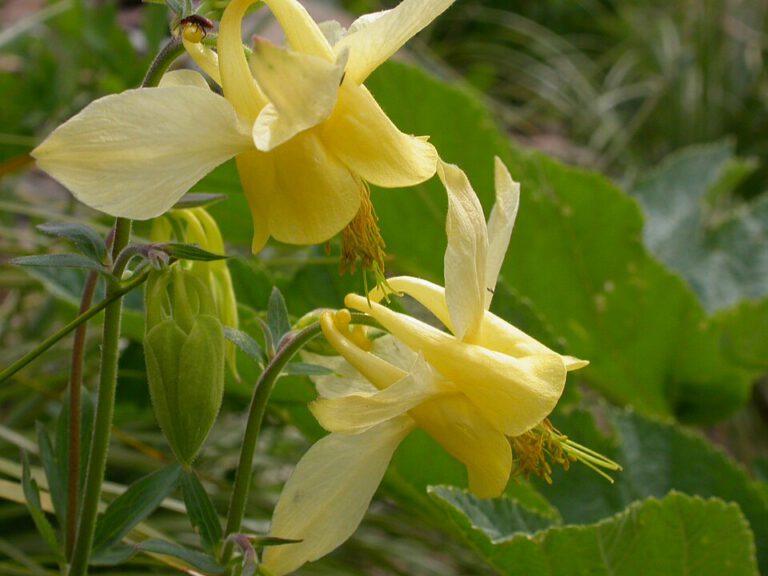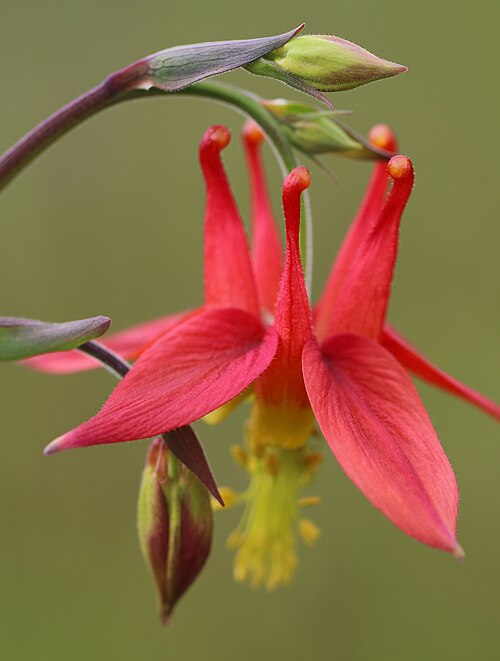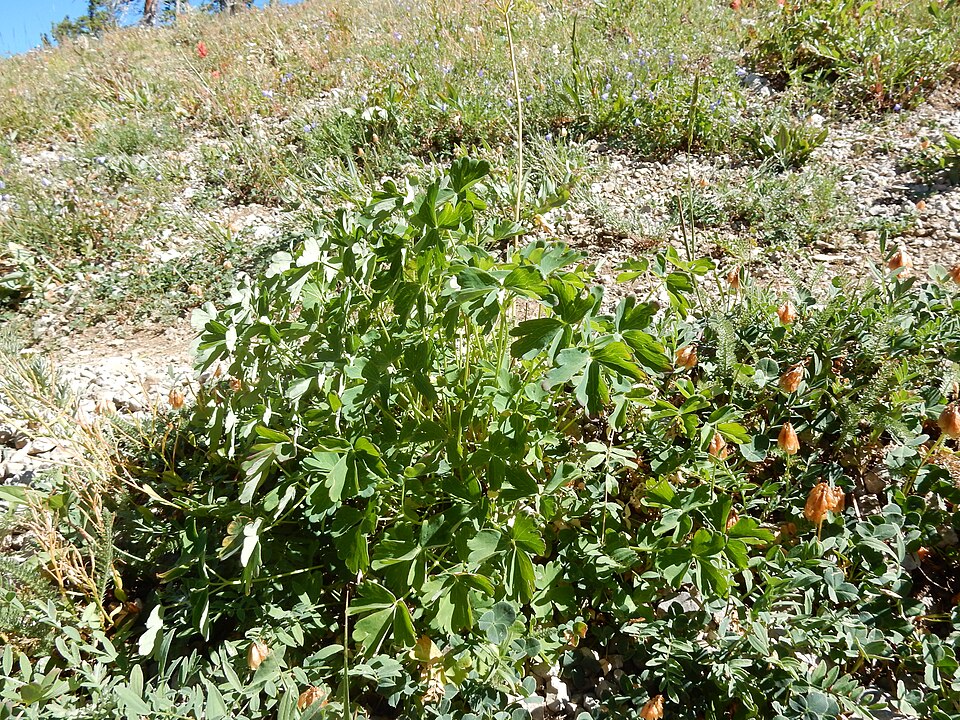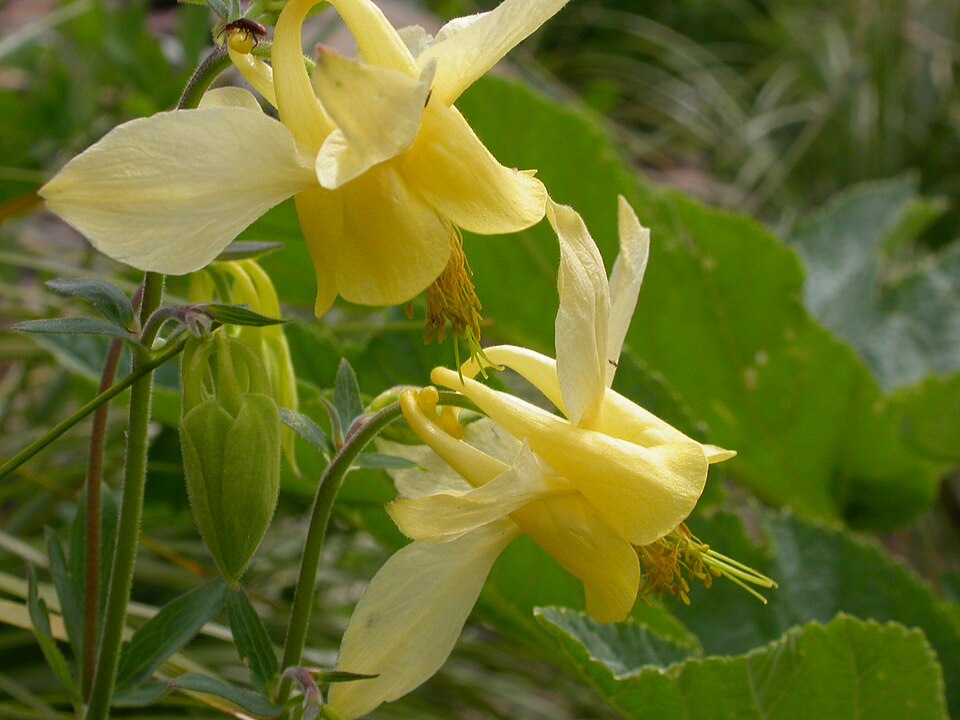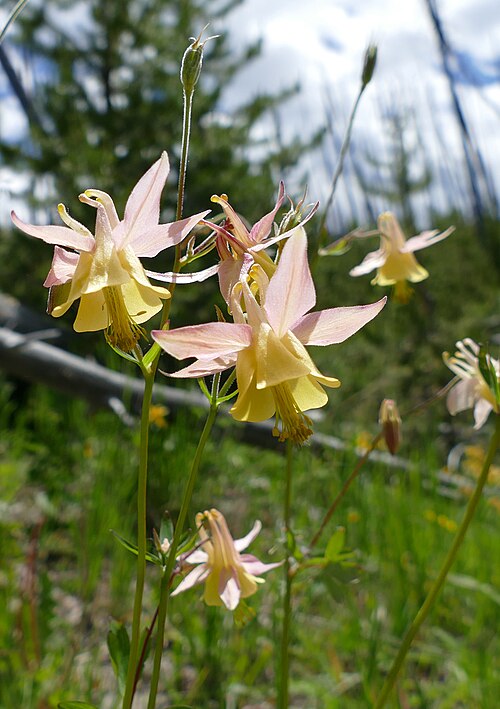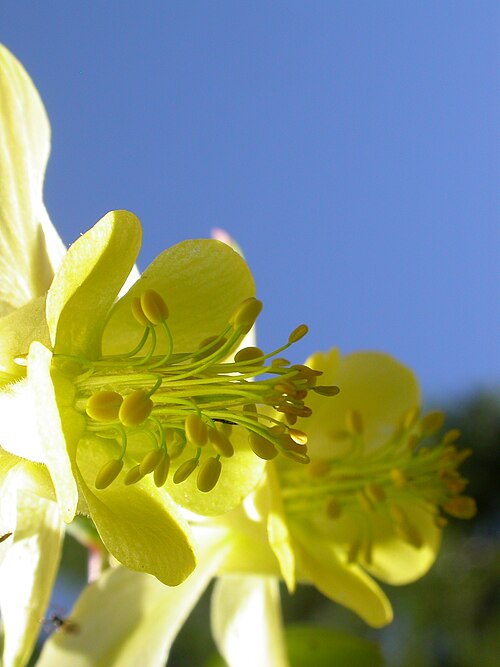Yellow Columbine: A Delicate Mountain Native for Your Garden
If you’re looking for a charming native wildflower that brings a touch of mountain meadow magic to your garden, yellow columbine (Aquilegia flavescens) might just be your perfect match. This delicate perennial forb is like nature’s way of adding tiny dancing ballerinas to your landscape, with its graceful nodding flowers and distinctive spurred petals that seem to curtsy in the breeze.
What Makes Yellow Columbine Special
Yellow columbine is a true North American native, naturally occurring across a impressive range that spans from Alaska down through western Canada and into the mountainous regions of the western United States. You’ll find this beauty growing wild in states including Alberta, British Columbia, Alaska, Colorado, Idaho, Montana, Oregon, Utah, Washington, and Wyoming.
As a native plant, yellow columbine has evolved alongside local wildlife and climate conditions for thousands of years, making it an excellent choice for gardeners who want to support their local ecosystem while enjoying beautiful blooms.
A Flower That’s Hard to Resist
The star of the show is definitely those charming pale yellow to cream-colored flowers that appear in late spring to early summer. Each bloom features the classic columbine shape with backward-pointing spurs that give the flowers their distinctive look. The delicate, nodding flowers seem to float above the foliage like tiny lanterns, creating an almost magical effect in the garden.
The plant itself grows as a herbaceous perennial forb, meaning it lacks significant woody tissue and dies back to the ground each winter, returning fresh and green the following spring. This growth habit makes it perfect for mixing with other perennials and creating seasonal interest in your garden beds.
Perfect Spots for Yellow Columbine
Yellow columbine is incredibly versatile when it comes to garden placement. Here are some ideal spots where this native beauty shines:
- Rock gardens and alpine-style plantings
- Native plant gardens and naturalized areas
- Woodland edges with dappled sunlight
- Wildflower meadows and prairie-style gardens
- Mountain-themed landscapes
- Mixed perennial borders for early season color
The plant works beautifully as both a standalone accent and in small groupings, where multiple plants can create a lovely drift of yellow blooms.
Wildlife and Pollinator Paradise
One of the best reasons to grow yellow columbine is the wildlife party it brings to your garden. Those distinctive spurred flowers aren’t just pretty – they’re perfectly designed to attract some amazing pollinators:
- Hummingbirds love the nectar-rich flowers and can easily access the spurs
- Long-tongued bees are frequent visitors
- Butterflies appreciate both the nectar and the landing platform the flowers provide
By planting yellow columbine, you’re essentially rolling out the red carpet for these beneficial creatures, supporting biodiversity right in your own backyard.
Growing Conditions: Keep It Cool and Well-Drained
Yellow columbine is surprisingly adaptable, but it does have some preferences that will help it thrive. Think mountain meadow when planning its spot:
Sunlight: Partial shade to full sun, though it appreciates some afternoon shade in hotter climates
Soil: Well-drained soils are absolutely essential – this plant does not like wet feet. Rocky or gravelly soils are actually preferred, mimicking its natural mountain habitat
Temperature: Thrives in cool conditions and is extremely cold hardy, suitable for USDA hardiness zones 3-7
Moisture: Needs adequate moisture during the growing season but requires excellent drainage
Planting and Care Made Simple
The good news is that yellow columbine is relatively low-maintenance once established. Here’s how to give it the best start:
Starting from seed: Yellow columbine grows readily from seed and will often self-seed in the garden if conditions are right. Seeds can be direct sown in fall or started indoors in late winter.
Soil preparation: Ensure excellent drainage by amending heavy soils with gravel, sand, or perlite. If you have clay soil, consider raised beds or rock gardens.
Mulching: A light mulch of gravel or small stones works better than organic mulch, as it improves drainage while keeping roots cool.
Watering: Water regularly during the first growing season to establish roots, then reduce frequency. The plant is relatively drought-tolerant once established.
Maintenance: Deadhead spent flowers to encourage more blooms, or leave them if you want the plant to self-seed. Cut back foliage after it dies back naturally in fall.
Why Choose Yellow Columbine?
There are countless reasons to fall in love with this native beauty. It’s perfectly adapted to challenging mountain conditions, making it resilient in the face of temperature swings and harsh weather. Its early blooming time provides crucial nectar when many other flowers haven’t yet awakened from winter’s sleep. Plus, as a true native, it requires fewer resources and supports local wildlife better than many non-native alternatives.
Whether you’re creating a dedicated native plant garden or just want to add some authentic mountain charm to your landscape, yellow columbine offers that perfect combination of beauty, wildlife value, and easy care that makes gardening such a joy. Give this delicate dancer a spot in your garden, and you’ll be rewarded with years of graceful blooms and the satisfaction of supporting your local ecosystem.
